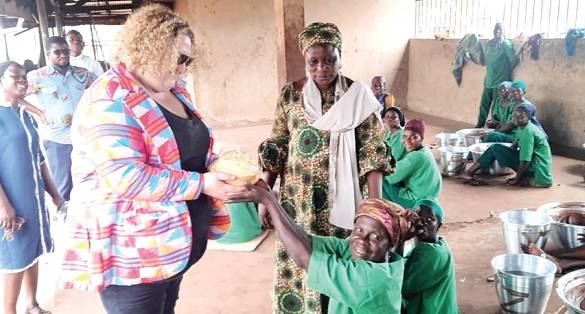The Australian Government has provided assistance to 150 women who process shea butter in the Sagnarigu Municipality of the Northern Region in order to boost their output and improve their standard of living.
The assistance was a part of a $373,000 grant that the Australian government initiated in 2022 to support a number of African nations, including Ghana.
The recipients received start-up kits that included processing roasters, basins, little water storage tanks, buckets, and cooking pots for oil extraction.
Also, they have benefited from building capacity in record keeping, money management, and saving.
The ladies are the recipients of the "Increasing Productivity and Profitability of Women-Owned Small-Scale Companies" initiative, which is being carried out by Children Believe, a Ghanaian organization that focuses on children, and the Markaz Al Bishara Child Development Program.
Visit
The funding was revealed during a visit to Katariga and Tampe-Kukuo in the Sagnarigu Municipality by the Second Secretary at the Australian High Commission in Ghana, Harriet Williams, and a few other development partners to meet with the project's beneficiaries.
During the visit, the project partners were also contacted in order to identify any gaps that arose during implementation and discuss ways to keep the project going.
After the tour, Ms. Williams spoke to the media and stated, "I must admit that what I have seen has left me quite pleased. I am aware that a lot of work has gone into them, and I want to congratulate Children Believe for a job well done. We'll keep helping, particularly in the area of women's empowerment.
Esenam Kavi Desouza, the country director of Children Believe, argued that women's involvement in successful small-scale businesses was crucial to ensuring that their rights were upheld and enabling them to maintain control over their personal lives while having an impact on their homes and communities.
She said that although over 900,000 rural women in Ghana depend on the manufacturing of shea butter for their primary source of income, they receive less from the finished product's value, which is why the initiative needed to be started.


